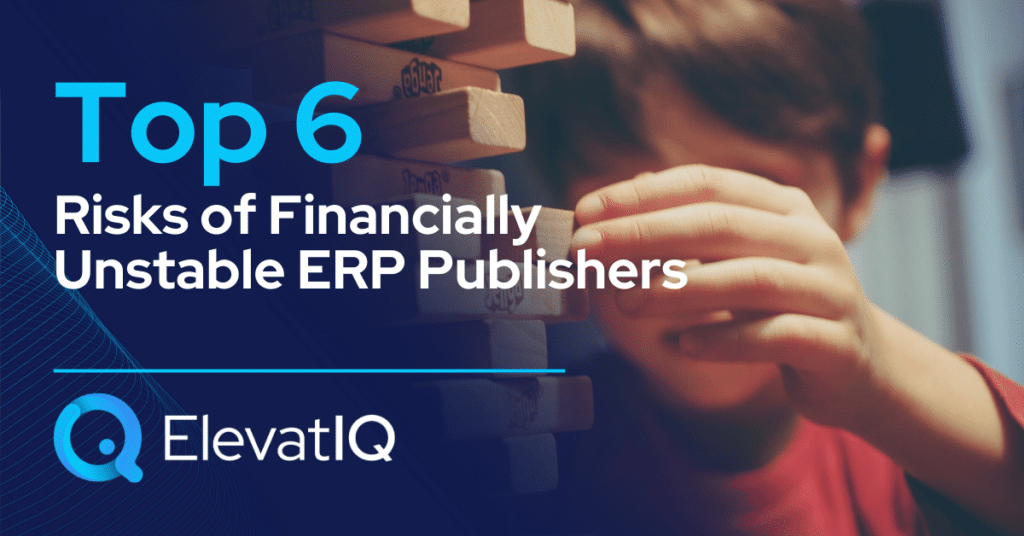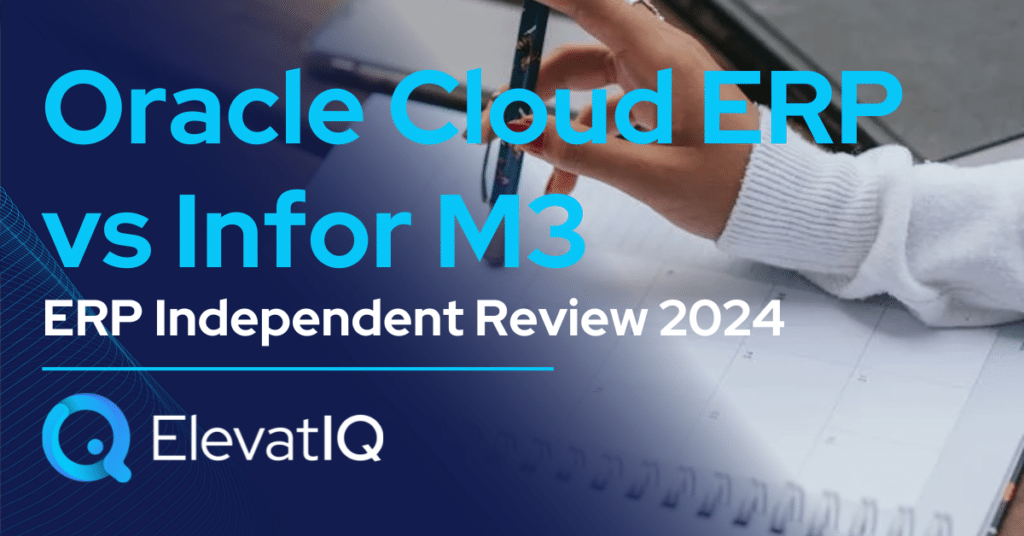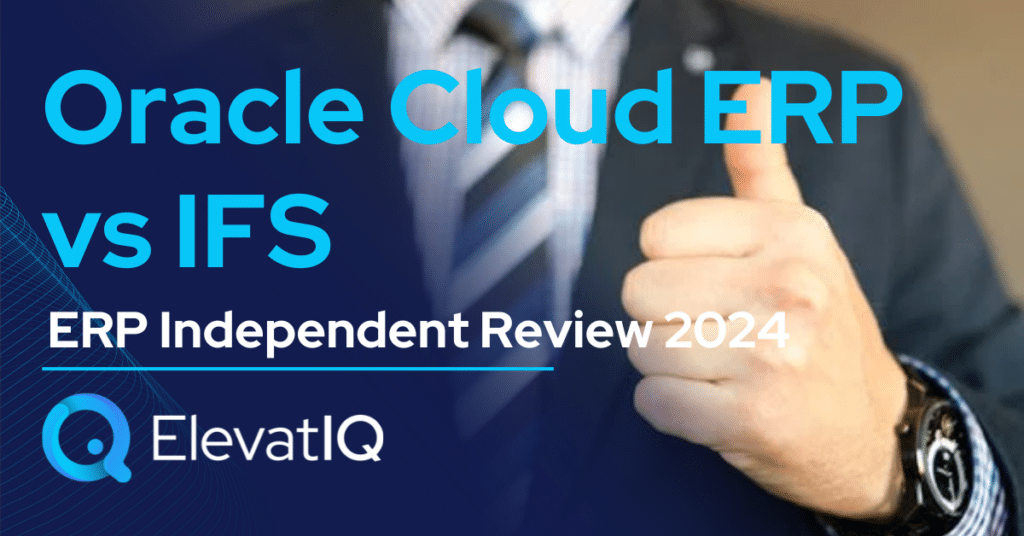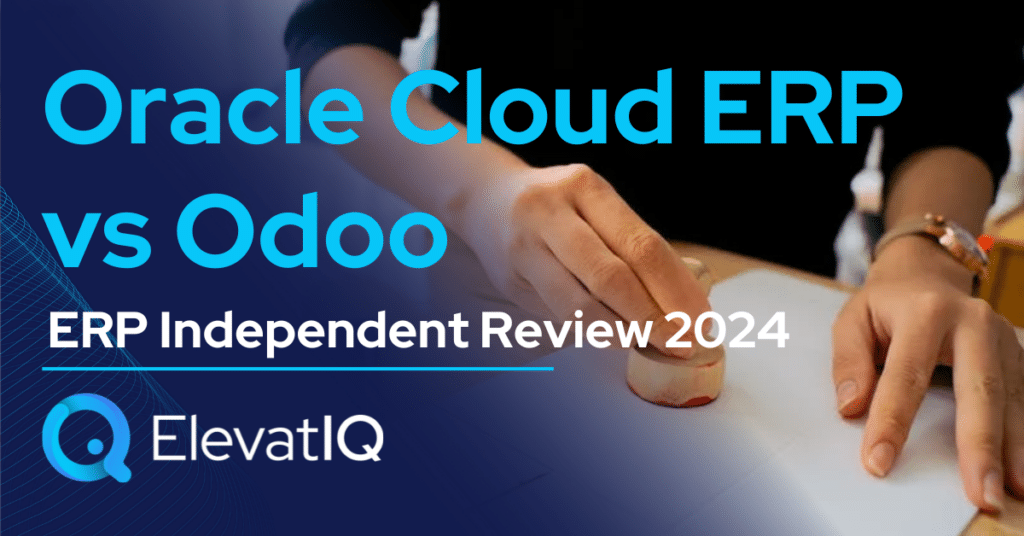Last Updated on January 1, 2025 by Sam Gupta
Gordon B. Hinckley once said, “You can’t build a great building on a weak foundation.” Similarly, in the context of ERP systems, the “foundation” represents the financial stability of your ERP publisher, while the “building” symbolizes your company’s business continuity. This idea is straightforward, yet many businesses opt for potentially financially unstable ERP publishers without fully grasping their implications. In this article, you will learn why the financial stability of your ERP publisher is crucial and what could happen if you choose one that isn’t financially sound.
We have listed down the categories of publishers that would fall under these categories:
- A small publisher without inadequate market share to support ongoing development and maintenance costs.
- A well-known publisher that is operating at a loss in order to gain market share.
- A product that is not profitable but backed by a large, financially sound corporation.
When you implement an ERP system, you are relying on an algorithm that is developed and continuously maintained by the ERP publisher, even if you own the code in the case of an on-prem installation. The costs of this ongoing maintenance are typically shared by their customers. If the publisher lacks sufficient market share and existing customers are unwilling to pay more, the publisher may face financial difficulties. This could lead to the following consequences for you.

1. ERP products no longer supported
Much like cars or heavy machinery, ERP products are complex systems that should only be fixed by their publishers to avoid unintended consequences. If you’ve chosen a publisher that can no longer provide official support due to financial difficulties, your options are limited to seeking help from unauthorized consultants, which could lead to unpredictable behavior of your ERP system, or starting the implementation process all over again. To avoid this scenario, it’s best to steer clear of the financially unstable ERP publishers mentioned earlier.
How often do ERP publishers face cash challenges? ERP development is expensive and can drain cash flow. The frequency of these challenges largely depends on their cash reserves. As a general guideline, we recommend that ERP publishers with thousands of installations in the SME market to maintain financial stability. For markets with larger customers, this number may be lower.
2. Unable to provide regulatory upgrades
ERP publishers need to develop new features or update existing functionality to ensure compliance with changing regulations. If the publisher lacks the financial resources to support this development, you may find yourself out of compliance, potentially facing monetary penalties. When the Everest ERP system experienced financial troubles, its customers had to find a new solution to maintain regulatory compliance. You can avoid this situation by choosing financially stable ERP publishers.

3. Incompatible with underlying software or hardware
ERP products rely on various software packages and hardware components. For instance, Acumatica ERP is built on the .Net platform, which is owned and maintained by Microsoft. Each version of .Net is compatible with a specific version of Windows software, and Windows software may only work with certain Intel processors. Whenever an underlying component is updated, any dependent component must also be updated to maintain compatibility.
If an ERP publisher is not financially stable enough to support ongoing compatibility fixes with hardware and software, you may have to undergo the implementation process again with a different ERP publisher. Alternatively, the software could stop working suddenly due to compatibility issues, leading to disruptions in your business operations.
4. Chances of getting acquired
If an ERP publisher faces financial difficulties, they may need to secure an investor to fund development and maintenance. This investor could be a larger ERP publisher, such as Infor or Oracle.
When larger companies acquire smaller ERP publishers, they often use various strategies: 1) raise prices to recover ongoing losses, 2) discontinue the product and push you to switch to one of their own, 3) reduce support and other benefits you previously received, or 4) impose limits on storage or bandwidth, requiring you to upgrade. In any of these scenarios, you’ll either face higher costs or undergo another ERP implementation.
5. Inability to find consultants to get support on the product
Consultants prefer working with products backed by financially stable companies, as it minimizes risks to their careers. If an ERP publisher is facing financial challenges, you may find it difficult to secure consultants who can support the product.

6. Each of these risks has the following financial implications for your company.
- Pay more than the agreed amount originally.
- Lose investments on the original upgrade and might need to plan for a premature switch.
- Forced to switch to an unwanted and expensive product in case of an acquisition.
- Forced out of the platform if the product gets shut down by the acquiring company
Conclusion
ERP publishers provide the foundation for your business operations. Opting for a weak foundation, such as a financially weaker publisher, is not a wise decision. While you might save a small amount of money with these publishers, the financial risks involved could have serious consequences that aren’t worth the savings.










